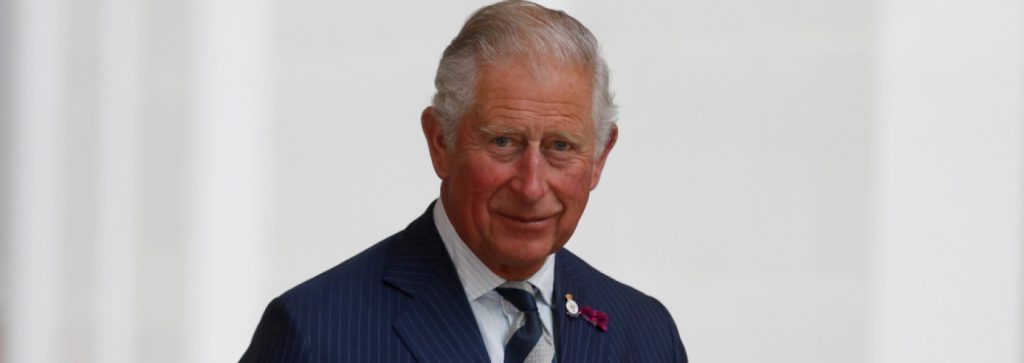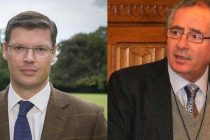Last Saturday, Charles, the eldest son of Her Majesty, Queen Elizabeth II, was proclaimed King in a ceremony at St James’s Palace, which was televised to the world in an historic first.
Buckingham Palace had confirmed the death of The Queen at her home in Balmoral on the afternoon of Thursday, 8 September. She was aged 96 and had been the UK’s longest reigning monarch. Immediately upon her death, the crown passed to the Prince of Wales, who is next in line to the throne.
In keeping with tradition, proclamation events confirming Charles’ assent to the throne were also held across the United Kingdom, in Britain’s overseas territories and across the Commonwealth.
Having been born into royalty, Charles, 73, is not new to the spotlight. However, curiosity about Britain’s new king has piqued the interest of people far and wide, so here are five fascinating facts about His Majesty, King Charles III.
1. The title of King Charles III
Monarchs can choose the name by which they are known. The birth name of Charles’ grandfather was Albert Frederick Arthur George Windsor. However, he chose the name George when he assumed the monarchy in December 1936, making him King George VI during his reign. His daughter Elizabeth opted for her own name and now Charles has also chosen to keep his birth name.
King Charles at his proclamation ceremony
Embed from Getty Images
A new monarch’s name is usually announced by the Accession Council during the proclamation ceremony at St James’s Palace in London. However, Prime Minister Liz Truss referred to the new sovereign by his title when she spoke outside Downing Street following the formal announcement of the death of The Queen:
“Today the Crown passes, as it has done for more than a thousand years, to our new monarch, our new head of state, His Majesty King Charles III.”
2. Charles shows admiration for Atatürk
It is common for foreign dignitaries to visit the mausoleum of the founding father of modern Turkiye, Mustafa Kemal Atatürk, but not many would go out of their way to squeeze it in during a one-day visit to the country, but that is exactly what the then Prince of Wales did on his first official visit to Turkiye in May 1989
Despite only being in the country for 24 hours, Charles chose to make a private trip to the capital Ankara where he laid a wreath at Atatürk’s hilltop mausoleum, Anıtkabir. He wrote the following tribute in the Anıtkabir guest book: “On my first visit to Turkey I salute the memory of the founder of a great nation.”
Charles and Camilla visit Anıtkabir in 2007
Embed from Getty Images
Charles has paid his respects to Atatürk at Anıtkabir in subsequent visits to Turkiye, including with his second wife Camilla in November 2007.
3. A regular visitor to Turkiye
Britain’s new sovereign has been a regular visitor to Turkiye in both a private and official capacity since his first visit in 1989.
He attended both the 90th and centenary commemoration events of the Gallipoli Campaign, in 2005 and 2015. For the centenary, Charles was accompanied by his younger son Prince Harry, as they represented the Queen in paying their respects to the tens of thousands of Turkish, British and Commonwealth troops, who died in this fierce battle in which the Turks, led by Mustafa Kemal, triumphed. Prince Charles was seated between Turkish President Recep Tayyip Erdoğan and Azerbaijan’s President Ilham Aliyev.
Gallipoli Campaign centenary commemoration, 24 April 2015
Charles also spent four days travelling across the country with his wife, the Duchess of Cornwall, in November 2007. The couple were guests of President Abdullah Gül, and in the historical and cultural sights in multiple cities, including theEyüp Sultan Mosque in Istanbul, the ancient ruins of Ephesus in Izmir, and the Mevlana Museum and performance of whirling dervishes in Konya.
4. The Cyprus connection
The Duke and Duchess of Cornwall were due to visit Cyprus, where Britain has two military bases, in March 2020. However, following the implementation of global travel bans following the outbreak of the coronavirus pandemic, the trip to the former British colony was cancelled.
A year earlier, Prince Charles had hosted an event for Greek Cypriot leader Nicos Anastasiades and British Cypriots at Buckingham Palace. Among the Turkish Cypriots who attended were Baroness Meral Hussein-Ece, artist Tracey Emin, businessman and Dragon’s Den star Touker Süleyman, lawyer Emma Edhem and former British Ambassador to Iceland Alp Mehmet.
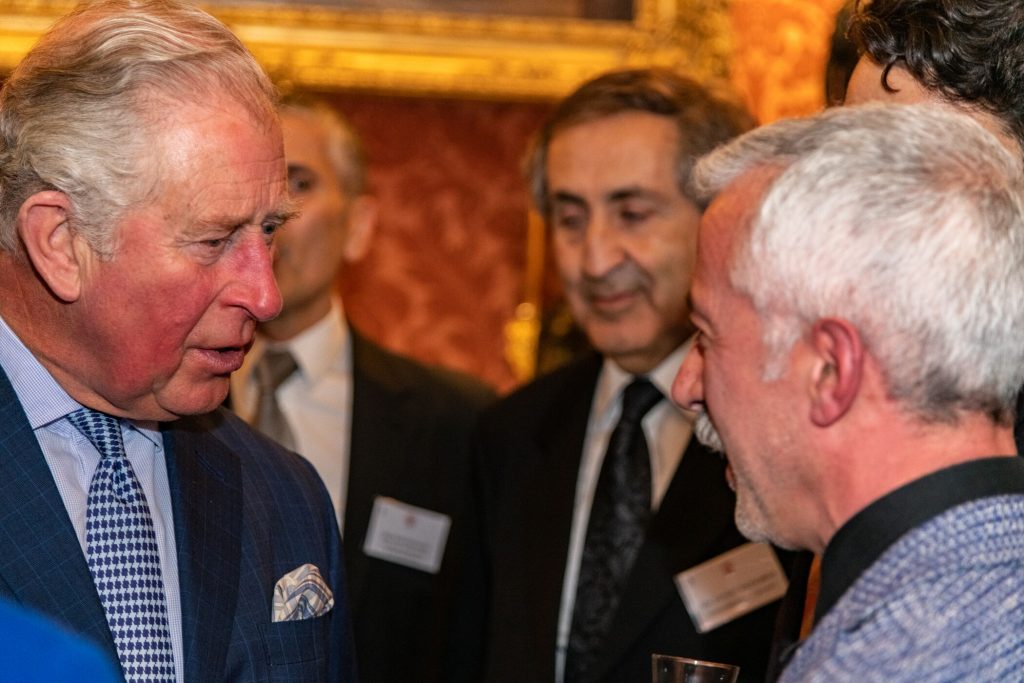
Prince Charles was a known admirer of the late Turkish Cypriot Sufi spiritual leader Sheikh Nazim – one of the world’s most influential Muslim leaders. For years, rumours circulated that the prince was a regular private visitor to the Sheikh’s Lefke home and that the holy man had inspired the prince to convert to Islam. While Britain’s new monarch remains a Christian, his interest in, and respect for, Islam are evident for all to see.
5. A deep respect for Islam and role as a defender of all faiths
As an excellent article by The Islam Channel (King Charles III: Quotes That Capture His Admiration For Islam And Muslims, 9 September 2022), notes, King Charles’ fascination with the Islamic faith is long-standing and reflected in many ways. The British sovereign has visited multiple holy Muslim sites, held meetings with numerous Muslim spiritual leaders, and shown solidarity with Muslim victims of terror. He has also given positive keynote speeches about the importance of the world’s second most popular religion, commenting on its contribution to civilisation and how its different facets, from Islamic finance to Ramadan, can aid society’s ills.
Charles is patron of the Oxford Centre for Islamic Studies, which was founded in 1985. He gave his first major address on Islam at the Sheldonian Theatre for the Centre for Islamic Studies in October 1993, his words resonating just as strongly two decades on:
“If there is much misunderstanding in the West about the nature of Islam, there is also much ignorance about the debt our own culture and civilisation owe to the Islamic world. It is a failure which stems, I think, from the straitjacket of history which we have inherited. The medieval Islamic world, from Central Asia to the shores of the Atlantic, was a world where scholars and men of learning flourished. But because we have tended to see Islam as the enemy of the West, as an alien culture, society and system of belief, we have tended to ignore or erase its great relevance to our own history.”
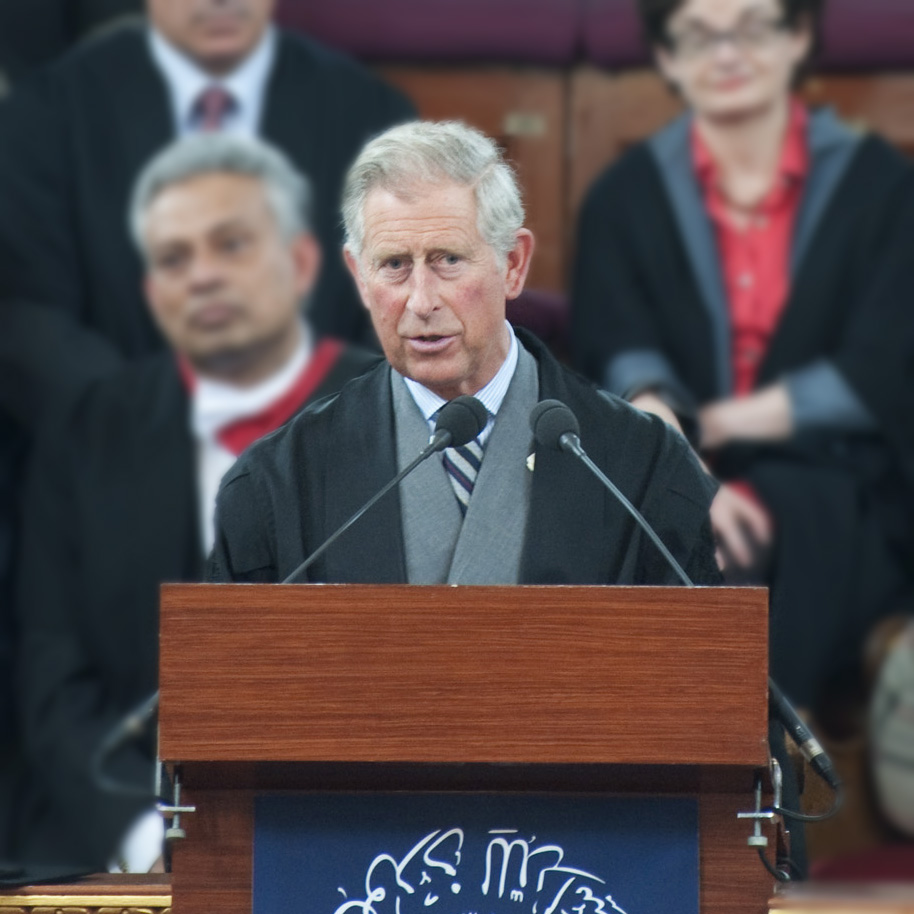
“The Islamic world is the custodian of one of the greatest treasuries of accumulated wisdom and spiritual knowledge available to humanity. It is both Islam’s noble heritage and a priceless gift to the rest of the world. And yet, so often, that wisdom is now obscured by the dominant drive towards Western materialism – the feeling that to be truly “modern” you have to ape the West,” King Charles also said in the same 1993 speech.
As a practicing Christian, Charles’ exploration of faith is natural. As monarch, however, his role goes beyond devotion, combining including both religious and secular duties, as the British sovereign is also “Defender of the Faith” and “Supreme Governor of the Church of England”.
In his first address to the nation on Friday, King Charles spoke about how his Protestant beliefs have informed his approach to life and leadership, stating that his faith was ‘deeply rooted’ in the Church of England and that it had taught him to ‘cherish a sense of duty to others.”
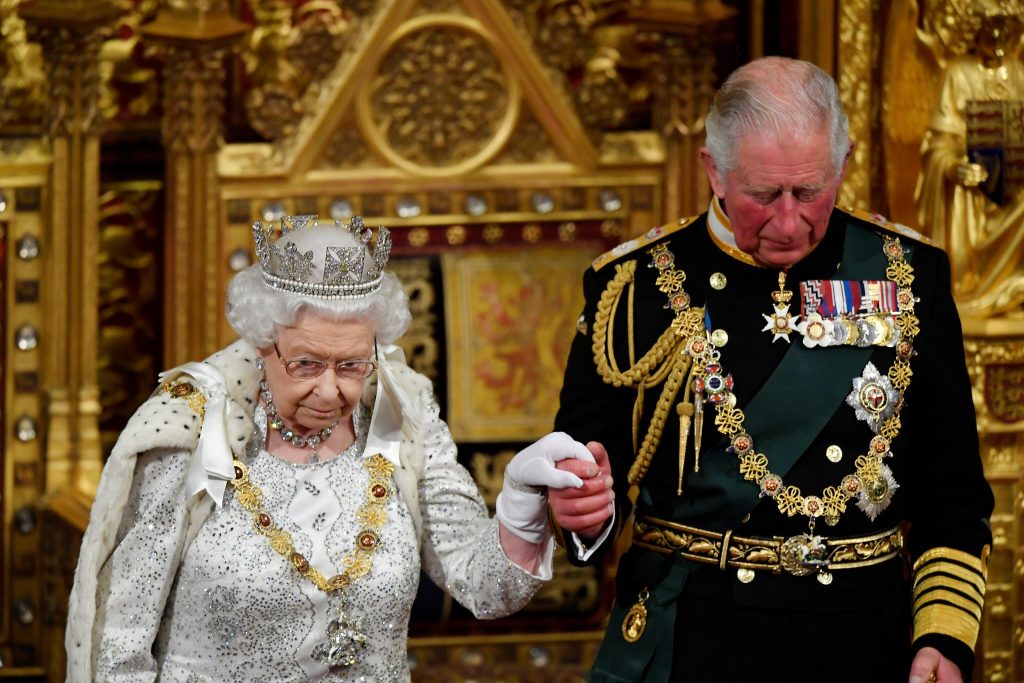
In 1994, Charles gave a nod to the role he would fulfil when he became king, stating he preferred ‘defender of faith’ rather than ‘Defender of the Faith’, reflecting Britain’s religious diversity. He reaffirmed this in an interview with the BBC in 2015, when he said:
“I mind about the inclusion of other people’s faiths and their freedom to worship in this country. And it’s always seemed to me that, while at the same time being Defender of the Faith, you can also be protector of faiths.”
King Charles reaffirmed his respect not just for British Muslims, but also those of other faiths and backgrounds in his first speech, making clear he would serve all without distinction: “Whatever may be your background or beliefs, I shall endeavour to serve you with loyalty, respect and love,” the new king said.

